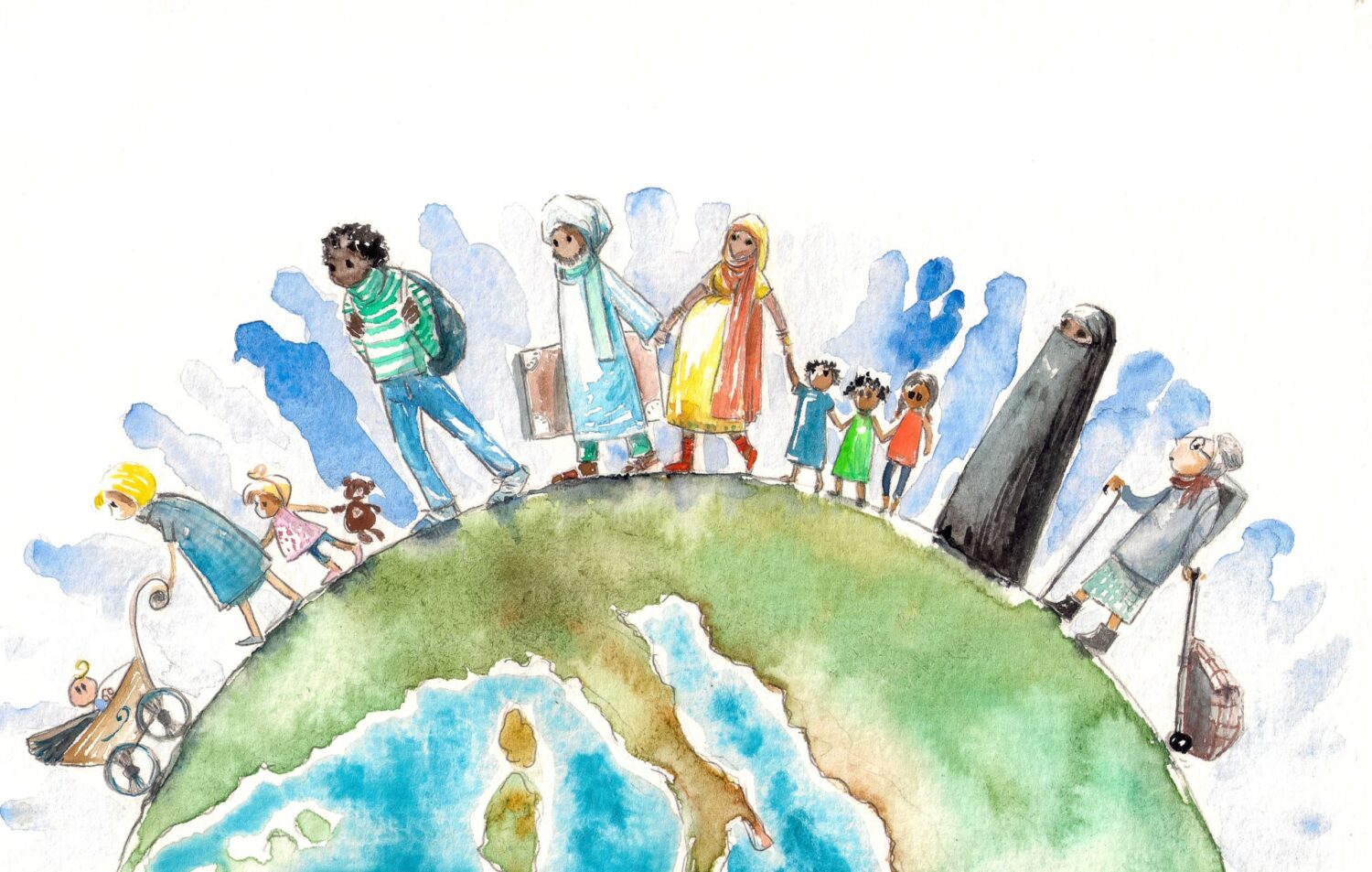As a member of the Religion & Society team, I had the opportunity to help launch the Powering Pluralism Network. In the beginning, this felt like an ambitious, almost-unwieldy goal: How do we get faith leaders, nonprofit executives, community organizers, academics, and philanthropic leaders in the same room? And once we’ve gathered them, what do we do together?
Yet, when we gathered our first cohort together virtually in the summer of 2020, one of the members exclaimed: “It feels so good to know I’m not alone!” This, to me, is the most impactful aspect of the Religion & Society Program’s work. At a time when we face many intersecting crises, this cohort-driven approach, focusing on building personal relationships, is deeply valuable.
I often find myself reflecting on a phrase from Network member Dr. Ilyse Morgenstein Fuerst’s “Keeping it 101” podcast: “You might be done with religion, but religion isn’t done with you.” Moving forward, I feel the Religion & Society Program is well-positioned to convene creative, inspiring conversations on religion’s role in relation to a wide range of social justice issues.
How do we get faith leaders, nonprofit executives, community organizers, academics, and philanthropic leaders in the same room?
For example, we know that police departments and government agencies have targeted Muslim American communities through surveillance of mosques and community groups. What would it look like to discuss big tech, surveillance, and police abolition in relation to religious pluralism?
Additionally, Indigenous communities across the country are fighting fossil fuel projects that threaten their sacred sites and homelands. What would it look like if our conversations around religious pluralism centered Indigenous sovereignty and climate justice?
Finally, with the rise of religious nationalism worldwide, we are seeing self-appointed representatives of religious traditions playing a deeply divisive role in their societies. What if those of us fighting Christian nationalism, for example, had the opportunity to learn from groups pushing back against Hindu nationalism, and vice versa?
The Religion & Society Program may not be able to provide all the answers—but I hope it will bring us together to start having these conversations.
 Nikhil Mandalaparthy is the Director of Advocacy at Hindus for Human Rights and a former Religion & Society team member.
Nikhil Mandalaparthy is the Director of Advocacy at Hindus for Human Rights and a former Religion & Society team member.


